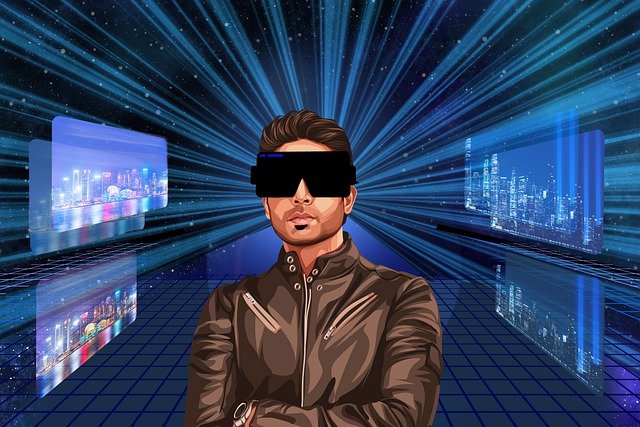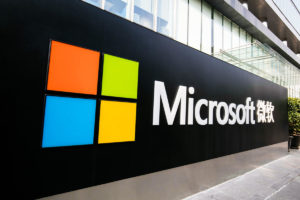The metaverse is rapidly gaining momentum as brands strive to provide consumers with engaging and immersive experiences. This has led to a surge in marketers exploring the virtual world. With the rapid advancement of technologies such as augmented reality (AR) and virtual reality (VR), and the growing adoption of non-fungible tokens (NFTs), the potential use cases for the metaverse across industries are expected to expand in the coming years.
The AR & VR technology is intriguing and exciting but today they are more of an enterprise solution than a consumer technology solution. For consumers to adopt AR and VR on a daily basis will take a few years. The first step is to introduce consumers to the world of Metaverse which they can access easily from the current technology they use.
According to a 2021 Bloomberg report, the global metaverse technology market is projected to become a lucrative industry worth $800 billion by 2024. It’s no wonder that organizations are looking to adopt the metaverse for various use cases and segments, particularly in the coming years, starting 2023.
Virtual selling & product innovation
An increasing number of fashion brands are turning to digital-only clothing and accessories in the metaverse. These brands are launching exclusive products and selling goods and services that only exist in the virtual world. The metaverse offers fashion brands a unique opportunity for product innovation through digital tools.
This trend is not limited to fashion, as players in other industries such as aviation and automotive are also exploring ways to utilize the metaverse for product development. For example, some companies are creating digital twins of aircraft and vehicles to allow for more efficient and immersive engineering efforts in the virtual world. This is an exciting development that is set to bring more innovation across industries in the future.
Creating a hyper-real virtual shopping experience
With the declining costs of VR headsets and connected devices, more and more brands are getting onto the metaverse bandwagon to offer virtual shopping experiences to consumers. In a year or two, virtual showrooms are going to become commonplace. Brands will use these storefronts to offer consumers access to a large product portfolio without having to worry about limited retail space.
These showrooms will offer buyers virtual try-on for products. Further, the digital avatar of real salespersons will guide buyers as they shop in the metaverse.
The metaverse provides brands with an exciting opportunity to offer consumers an alternative shopping experience. One example of this is the ability for car manufacturers to offer test drives in an extended reality setting, in addition to the virtual vehicle tours they already provide. This technology can be used to offer customers an experience that would be impossible in the physical world, such as allowing customers to test drive cars in different virtual environments or test drive cars that are not yet available in the market.
Reimagining customer service & interactions
Unlike the physical world, metaverse platforms offer brands an opportunity to choose how, when, and where they want to interact with consumers. This vests more control in brand custodians’ to influence and alter customer experience at any point of the buying journey. Product and service companies will leverage their presence in the metaverse to augment customer experience and boost engagement delighting buyers at every step of the purchase journey.
Connected workplaces
On the back of ubiquitous data, the metaverse will see organisations power a more collaborative environment at the workplace. In the coming years companies across industries will extensively use metaverse and emerging technologies to advance research and development activities, support fieldwork, and manage agile and complex projects both in the real as well as the virtual world. Soon client pitches in the metaverse are going to be a reality where virtual clones of real executives could be seen leading business conversations.
Education & corporate training
The real-time data stream in the metaverse will offer educational institutes and enterprises outsized opportunities to connect with learners and staffers for virtual training.
Educators and instructors will get into the metaverse and work on real-life scenarios for guided learning experiences.
Advertising & marketing
Marketers in India have an outsized incentive to be a part of the metaverse given that the enthusiasm for the virtual world exceeds the global average in India.
According to a study by Boston Consulting Group, 80% of Indians are familiar with the metaverse, above the global average, and 75% of Indians expressed positive feelings about engaging with extended reality. The year 2023 will see more brands joining the universe of global and big brands in creating virtual worlds in the metaverse.
Gaming & entertainment
The gaming market in India is estimated to be more than triple to US$7 billion by 2026. The majority of this market has already traversed in the metaverse world.
Various gaming giants and platforms are already in the metaverse hosting popular games and live gaming sessions in virtual worlds like Decentraland.
Like gaming, the entertainment industry has its eyes set on the metaverse. For example, a leading Indian film production studio has already bought a virtual plot in the metaverse. Another media house recently welcomed its recruits into the metaverse world. The player plans to launch non-fungible tokens (NFTs) to monetize its films, TV shows, and characters in the metaverse.

Guest contributor Piyush Gupta is the CEO of VOSMOS, a company that addresses the ever-changing mindset of the customer in the metaverse virtual reality. Any opinions expressed in this article are strictly that of the author.












